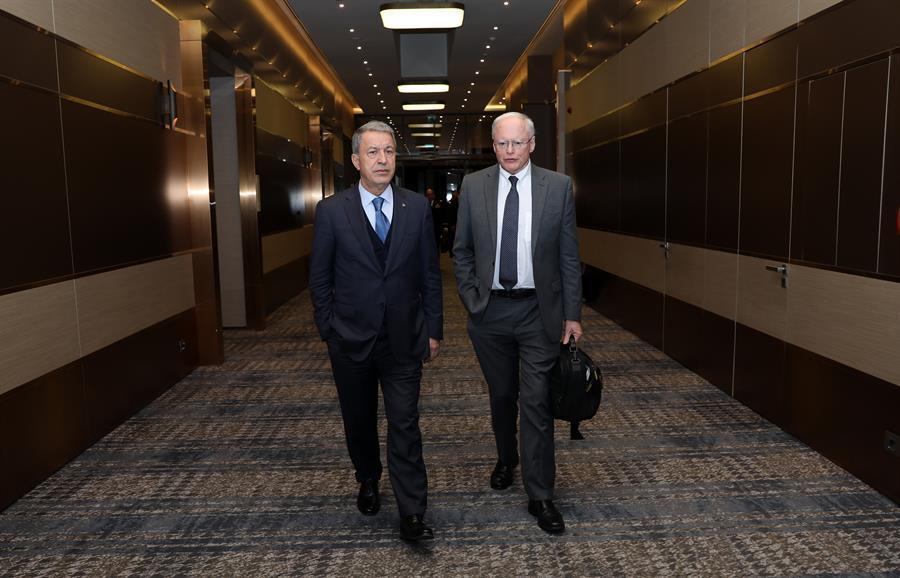
Officials from Turkey and the United States are in talks in the capital Ankara on the issues of a planned safe zone, a Manbij road map, an Idlib memorandum, a political solution and the rebuilding of Syria.
A U.S. delegation headed by James Jeffrey, the U.S. special envoy for the Global Coalition to Defeat ISIL, separately met with presidential spokesman İbrahim Kalın and foreign ministry officials on May 1.
Aside from putting extra emphasis on Turkey’s national security priorities, many other important issues also were discussed: the fight against terror in eastern Euphrates and in entire Syria, the planned safe zone, implementing the road map for Manbij, the fight against terror elements, including DEAŞ, PKK/YPG/PYD; preserving the Idlib Memorandum, rebuilding Syria and reaching a political solution in scope of Syria’s territorial integrity. were discussed during the meeting, according to presidential sources.
“It was assured that all of Turkey’s security concerns will be allayed with the planned safe zone and that all terrorist groups will be eliminated from the region,” according to presidential sources.
Both sides agreed that a solution should be decided and implemented following parleys between technical committees of Turkey and the U.S.
Cooperation regarding Syria should be pursued with trust and transparency, Kalın and Jeffrey assented, according to the sources.
Turkish Defense Minister Hulusi Akar also met with Jeffrey in Istanbul late on May 1.
Akar and Jeffrey discussed the latest developments in Syria, particularly the situation east of the Euphrates, Turkey's Defense Ministry said in a statement
Turkey and the U.S. have launched talks for a possible safe zone near the Turkish border in northern Syria, following the Washington’s decision to withdraw most of its troops in the country. The idea responded to Turkey’s concerns regarding the threat posed by the YPG as Ankara voices unease about harassment fires launched by the Kurdish group in the region.
The two countries since last year also have been discussing the withdrawal of the YPG from Manbij town in northwest Syria as part of a deal sealed between foreign ministers of Turkey and the U.S. on June 4. The agreed road map stipulates the withdrawal of all YPG members from Manbij to the east of Euphrates and for the establishment of a new city council by the local Arabs. Turkey has long criticized the U.S. for prolonging the process and violating the 90-day timeline.
Meanwhile, Ankara and Washington have been working on a possible visit by U.S. President Donald Trump to Turkey, according to Turkish presidential sources.
“We are working on alternative dates including July for Trump’s visit,” Turkish presidential sources said.
Turkish presidential spokesman İbrahım Kalın and U.S. National Security Advisor John Bolton discussed the Russian S-400 air defense system via telephone on April 30, Trump’s visit to Turkey and recent developments in Libya, presidential sources said.
The conversation came after President Recep Tayyip Erdoğan and Trump spoke by phone on April 29.
Tensions between the U.S. and Turkey have increased recently with Turkey set to begin receiving the Russian surface-to-air missile system that Washington contends will jeopardize Ankara’s role in the F-35 fighter jet program and could trigger American congressional sanctions.